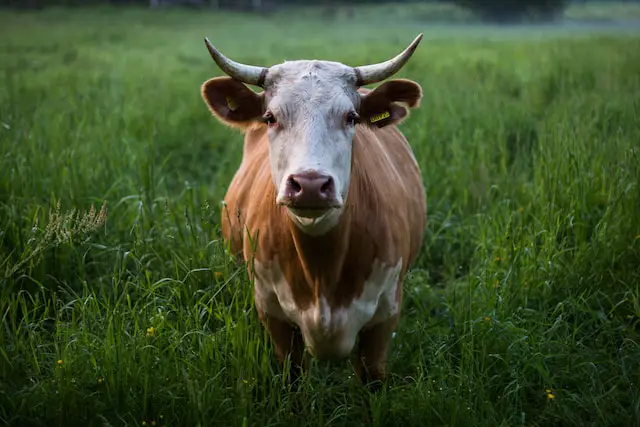The idea of working with animals is a dream that many share from a young age. For those passionate about animal welfare, the environment, or the sheer love of all creatures, great and small, a career with animals can be rewarding and exciting. But to turn this passion into a profession, a formal education is often essential. This article delves into the variety of college degrees that animal lovers can pursue to build a career around their passion. From veterinary medicine to zoology, we will explore the paths that lead to the heart of the animal kingdom.
Zoology and Wildlife Biology
If you’re fascinated by animal behavior and natural habitats, a degree in zoology or wildlife biology might be the perfect choice. A Bachelor’s in Zoology lays the foundation for understanding animal species and their ecosystems, whereas furthering your education with a Master’s or Ph.D. can lead to advanced research and academic positions.
Wildlife biology degrees similarly offer a Bachelor’s path with the opportunity to specialize in graduate studies. Students engage in a curriculum that emphasizes ecology and conservation, studying the intricate behaviors of animals and their roles in the environment. Fieldwork is a significant component, allowing students to conduct research in natural habitats. It’s during such field studies that one might think, “I need someone to do my papers for me,” as balancing in-depth research with academic requirements can be challenging.
Veterinary Medicine
A career in veterinary medicine is often the first that comes to mind for animal enthusiasts. To become a veterinarian, one must obtain a Doctor of Veterinary Medicine (DVM) degree, which opens doors to treating pets, livestock, and even wildlife. For those not looking to become a vet but still eager to work in the field, veterinary technician or technologist programs are excellent alternatives.
Areas of specialty within veterinary medicine include:
- Small animal care, focusing on pets like dogs and cats.
- Large animal care, dealing with livestock and equines.
- The intricate world of exotic animal medicine involves the care of reptiles, birds, and unusual pets.
The coursework for these degrees is intensive, grounding students in biology and life sciences, as well as providing hands-on experience in animal anatomy, physiology, and clinical practices through internships and residencies.
Animal Science and Agriculture
Degrees in Animal Science are tailored for those interested in the scientific and business aspects of animal care and agriculture. Students can earn a Bachelor’s, Master’s, or Ph.D. in Animal Science, delving into animal nutrition, genetics, and breeding.
Agriculture degrees with an animal focus examine livestock management and sustainable farming practices, preparing students for a future in the agricultural sector or related industries. Courses cover a wide range of topics, including animal husbandry, dairy science, and poultry science, ensuring graduates are well-equipped to manage animal production and health.
Marine Biology
Marine Biology degrees cater to those drawn to the ocean and its inhabitants. Through programs ranging from Bachelor’s to Doctoral studies, students gain an in-depth understanding of marine ecosystems and the conservation of marine wildlife.
Studying marine biology entails learning about the complexities of oceanography and the various species that populate the sea. Graduates often find opportunities in research and conservation efforts, as well as fulfilling roles in aquariums and marine parks where they can work directly with marine animals.
Conservation and Environmental Science
Degrees in Environmental Science with a focus on conservation are ideal for those who wish to protect animal habitats and ensure the longevity of biodiversity. Bachelor’s degrees provide a solid grounding in environmental issues, while Master’s programs in Environmental Management or Science prepare students for leadership roles in conservation.
Specializing in wildlife conservation and management, graduates can directly impact wildlife protection efforts. They learn to navigate environmental policy and advocacy, often contributing to legal and community education initiatives to promote conservation. These roles are crucial in shaping a future where humans and animals can coexist sustainably.
Psychology and Animal Behavior
For those intrigued by the inner workings of animal minds, pursuing a degree in Psychology with a focus on Animal Behavior is an enlightening path. Undergraduate and graduate programs offer courses in comparative psychology, which studies the similarities and differences across species, and cognitive ethology, which looks at the thought processes behind animal behavior.
Graduates with these degrees might find themselves in varied careers, from conducting behavioral research to developing enrichment programs for animals in zoos and sanctuaries. Understanding animal behavior is also crucial for roles in conservation, where knowledge of species-specific behaviors can aid in the development of effective conservation strategies.
Final Thoughts
Whether your interest lies in the depths of the ocean, the heart of the African savannah, or the companionship of a household pet, there is a college degree that can align with your passion for animals. The journey through academia to a career that allows you to work closely with animals is both exciting and fulfilling. As you prepare to take this leap, ensure your academic papers and thesis are of the highest quality by utilizing the best thesis writing services available, providing you with the support needed to excel in your studies. By pursuing one of these degrees, you’re not only investing in your future but also in the betterment of animals’ lives worldwide. With determination and the right education, you can turn your love for animals into a rewarding career that makes a difference.


Leave a Reply